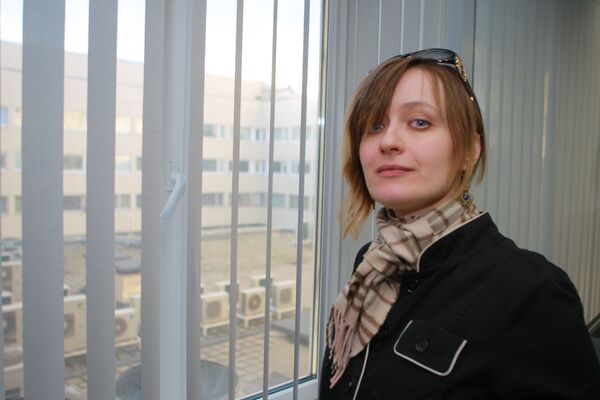I know what you’re thinking. You’re thinking the same things I am thinking. You’re asking yourself: after the Sukhoi Superjet-100 crash - what exactly is it going to take to reform the Russian aviation sector?
Aircraft-related carnage has become a kind of staple of the Russian news. So much so, that very few people outside the industry even take it seriously anymore.
Because I frequently write about aviation, and because I frequently try to get the comments of real live people for the purposes of this column, I called in a favor this week - and spoke to an experienced former commercial pilot about what happened with the Sukhoi. He flat-out refused to go completely on record - but felt it would be alright for me to mention that on May 9, the day that tragedy struck, he was relaxing at his dacha outside Moscow, and deliberately avoiding the news.
When I got him on the phone, he sighed a lot at first. He was genuinely upset about the crash. Then we talked about the problems in the industry - confusing legislation which breaks down the chain of accountability, paralyzing bureaucracy that’s meant to fight corruption but does just the opposite, a lack of bottom-up initiative, how top-down measures alone rarely work, and so on.
There are many factors that complicate the status of Russia’s aviation sector, but the human factor is probably the biggest - or so he felt.
But he also cautioned me against jumping to conclusions about this specific crash - as the media is wont to do. “If you don’t know the cause, you don’t know the cause,” he said. “Theorizing is useless at this stage.”
To him, the Superjet crash was bound to be treated as something symbolic - occurring on the day that Russia celebrates victory against Nazi Germany, and just a few days following the inauguration of Vladimir Putin - “People are going to use what happened for their own purposes,” he said. But as an industry professional, he wanted to wait and see for concrete facts to begin to emerge.
The Superjet crash occurred on foreign soil, which means that a foreign team will be chiefly tasked with investigating it, even though Russian specialists will also be involved. Maybe the results of their investigation will be given more credence than conclusions that are drawn by domestic experts on home soil. Or maybe the exact opposite will happen - conspiracy theories are already rife about the Superjet’s ultimate fate.
The pilot and I also spoke about a scandal that occurred in the wake of the crash. A flight attendant working for Aeroflot, Russia’s biggest and best airline, had carelessly tweeted on the subject:
“What, a Superjet came down? HAHAHA! That’s a POS! Too bad this didn’t happen at Aeroflot, [we’d] have one less of them, and maybe the rest of them would get sold back to someone!”
Outrage followed. Sarcastic discussions about the flight attendant’s glamour shot-style photographs on Twitpic also followed. Aeroflot promptly let her go.
My pilot friend (in just a few short minutes, I started thinking of him as a friend - probably because he has the sort of reassuring, scratchy pilot voice one longs to hear as a plane hits even a minor patch of turbulence) said that it made sense for Aeroflot to act quickly. “They know that Russia has a bad reputation when it comes to air travel safety - and yet they’ve built their own reputation around that,” he said. “They’re a solid company that has to share the country with a bunch of not-so-solid companies. It makes sense for them to be extra-vigilant about their public image.”
Before we hung up, I asked him how Russian pilots stand it all - the bad news, the blows against their own reputations, the sadness. “It’s lots of things, but I think the sky is probably the biggest thing,” he said. “Up high, it’s easier. You see everything from a different angle - and feel lighter as the result. Nothing weighs you down.”
The views expressed in this article are the author's and do not necessarily represent those of RIA Novosti.
Trendwatching in Russia is an extreme sport: if you’re not dodging champagne corks at weddings, you’re busy avoiding getting trampled by spike heels on public transportation. Thankfully, due to an amazing combination of masochism and bravado, I will do it for you while you read all about it from the safety of your living room.
Natalia Antonova is the deputy editor of The Moscow News. She also works as a playwright – her work has been featured at the Lyubimovka Festival in Moscow and Gogolfest in Kiev, Ukraine. She was born in Ukraine, but spent most of her life in the United States. She graduated from Duke University, where she majored in English and Slavic Literature. Before coming to Moscow, she worked in Dubai, UAE and Amman, Jordan. Her writing has been featured in The Guardian, Foreign Policy, Russia Profile, AlterNet, et al.
Trendswatcher: Of Parking and PR Disasters
Trendswatcher: So an Ax-Wielding Maniac Walks into Court...
Trendswatcher: Punk’s Not Dead - in Russia
Trendswatcher: Death Becomes Us
Trendswatcher: Tyumen’s Theory of Relativity
Trendswatcher: What the brief life of Anya Shkaptsova can teach us
Trendswatcher: Valeria Gai Germanika. A Bitter Pill for Pensioners
Trendswatcher: The Curious Case of Philipp Kirkorov



